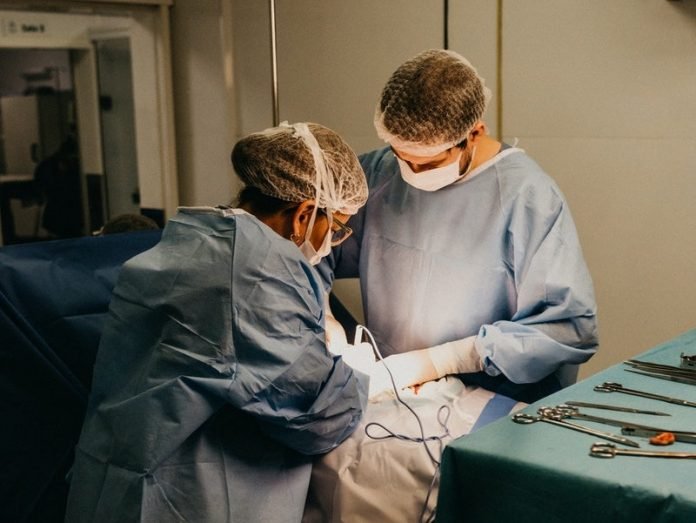
In a new study from Washington University in St. Louis, researchers found for people with obesity, a procedure rarely performed in the US more effectively eliminates type 2 diabetes than Roux-en-Y gastric bypass.
They found that biliopancreatic diversion appears more effective at eliminating diabetes not just because of greater weight loss but also because the procedure itself seems to make patients more sensitive to insulin.
The results help explain the high rate of diabetes remission in patients who have biliopancreatic diversion surgery.
For the study, researchers compared the effects of the two surgeries on insulin and glucose sensitivity in patients who, after their operations, lost 20% of their body weight.
Insulin is the hormone that helps the body keep blood sugar under control. Being more sensitive to insulin allows cells in the body to use glucose in the blood more effectively and helps lower blood sugar.
Roux-en-Y gastric bypass surgery makes a patient’s stomach smaller by sewing parts of the stomach together to create a pouch about the size of an egg.
Surgeons then connect that pouch to the upper section of the small intestine, bypassing a small portion of the upper intestine.
Biliopancreatic diversion is a more complicated surgery.
In this procedure, the surgeon removes the lower part of the stomach, and connects the upper part of the stomach to the end of the small intestine, close to where it empties into the large intestine.
Because the procedure bypasses so much of the intestine, the intestine absorbs fewer nutrients from food, putting patients at a higher risk for long-term nutritional deficiencies.
So doctors need to closely monitor patients to make sure they’re getting adequate amounts of vitamins and minerals.
In the US, surgeons performed some 228,000 bariatric procedures in 2017. Fewer than 3% were biliopancreatic diversion.
The team followed 24 patients, half of whom had Roux-en-Y gastric bypass surgery and the other half, biliopancreatic diversion.
They found the less common procedure results in better blood sugar control and higher rates of diabetes remission than Roux-en-Y gastric bypass surgery.
There was no difference in the benefit of surgery-induced weight loss to patients’ pancreatic function, in terms of insulin secretion, but patients who received biliopancreatic diversion surgery were more sensitive to insulin.
This study demonstrates that biliopancreatic diversion has unique, beneficial effects on insulin action, independent of any weight loss.
But the team says the type of bariatric surgery performed on any individual patient depends on many considerations, including an assessment of the effectiveness and safety of the procedure, patient preference, and the surgeon’s experience.
If you care about diabetes and your health, please read studies about a new way to restore insulin function in type 2 diabetes and findings of this diabetes drug linked to lower limb amputation.
For more information about diabetes treatment and prevention, please see recent studies about eating chocolate every day could protect your heart and reduce diabetes risk and results showing that egg metabolites in blood linked to lower diabetes risk.
The study is published in Cell Metabolism. One author of the study is Samuel Klein.
Copyright © 2021 Knowridge Science Report. All rights reserved.



